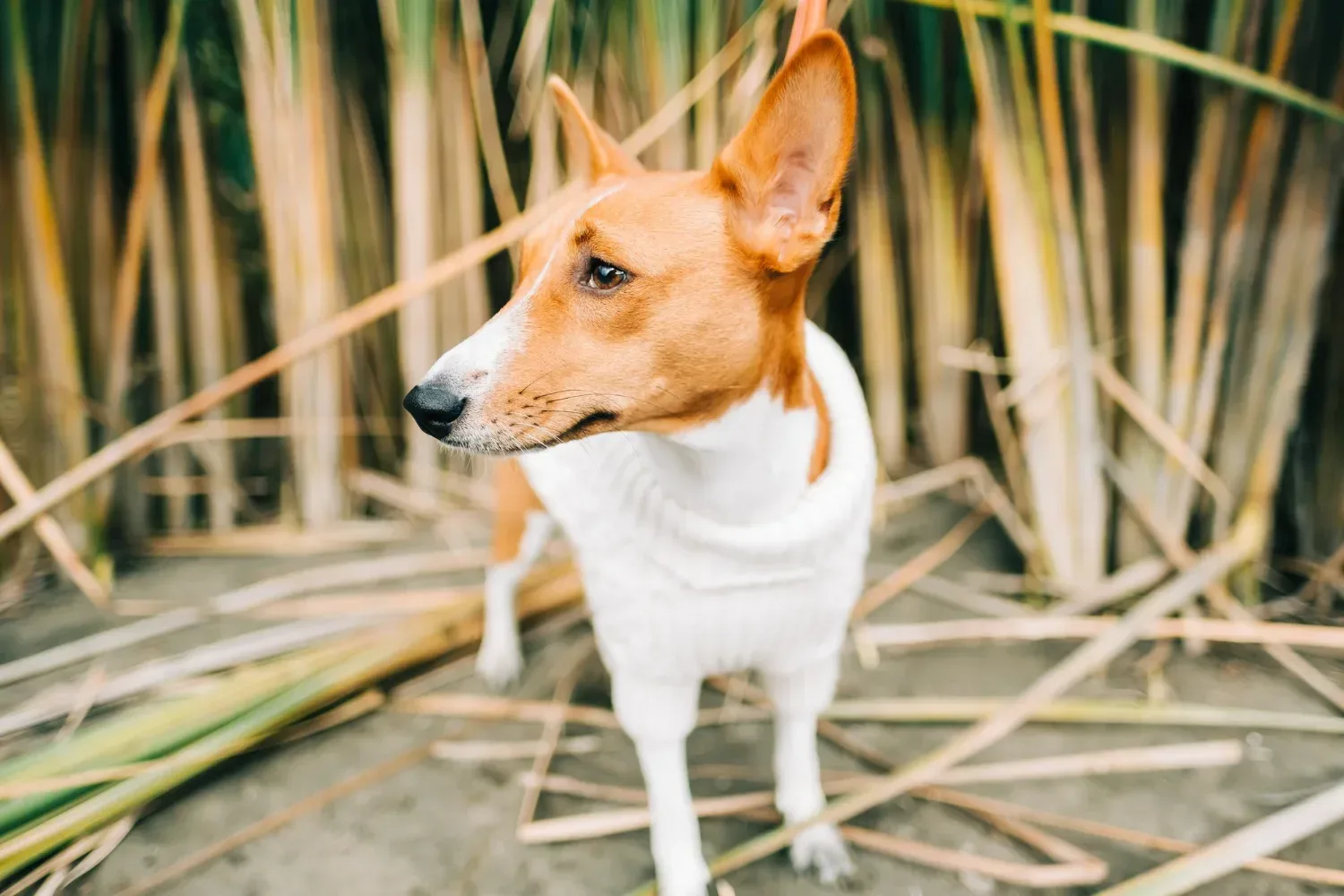
All about basenji rescue
If you are looking for a Basenji, you may have heard about Basenji rescue. This breed has wonderful temperaments, but it has been spoiled too much and was left with a bad reputation. Because of this, basenji rescue dogs tend to be a little snarkier than purebred ones. In this article, we’ll discuss the benefits of adopting a basenji from a rescue organization.
Basenjis are hound dogs
The Basenji is a breed of hunting dog that was developed from a primitive stock in central Africa. Its yodel-like voice is a distinctive characteristic of this breed, which the FĂ©dĂ©ration Cynologique Internationale places in the primitive or Spitz type. Its larynx is shaped differently than other hound dogs, making it a good choice for hunting. The breed’s yodel-like sound is another characteristic that sets them apart from other breeds.
While the breed is not particularly dirty, it still requires a bit of grooming. While Basenjis originated in Africa, they have been imported to many countries around the world. While they were difficult to import in the past, breeding programs have allowed them to breed and live in other countries. In the United States, they are relatively uncommon. Although they are a popular breed in many countries, you will be hard-pressed to find one in North America.
They are intelligent
While this breed is intelligent, it’s also not the best choice for families with small children. Its high energy level makes it a good companion for older kids. Although it doesn’t like children, it’s a good choice for adults without young kids. Make sure you start training your Basenji when it’s still a puppy. Leaving it alone all day will only cause behavioral problems later. But once you’ve learned how to train a Basenji, you’ll find yourself with a wonderful pet.
Although this breed is intelligent, it can be difficult to train. Because they are so independent and stubborn, training these dogs can be difficult. But with enough patience and positive reinforcement, they can learn new tricks and follow commands reliably. Training Basenjis requires patience and positive reinforcement. The best training techniques for this breed are short sessions that are infused with praise and positive reinforcement. And remember that patience is key if you’re considering adopting one.
They are playful
Basenjis are energetic and highly social, which makes them ideal for homes with young children. However, if you do not have the time to properly train them, they may become destructive and may not be suitable for households with young children. However, these dogs are very playful and can live with older children and babies. You should always supervise children while playing with Basenjis, as they are often exuberant and playful. This may help motivate children to clean up after them, too!
Basenji rescue dogs need daily exercise, and long walks on leash and runs in safe areas are recommended. In addition, Basenjis enjoy playing with toys and are great watchdogs. However, they do not bark or show aggression to strangers. This can make them vulnerable if they come into contact with wildlife. The dogs’ powerful hunting instincts can be dangerous when they approach a busy road. If your children or young children are not careful around Basenjis, they may chase them and hurt them.
They are alert
Basenjis are very alert and love to watch over their owners. They are extremely protective of their owners, and they will let you know when they are about to get into trouble. Basenjis need lots of exercise and a large yard. However, they should never be allowed to go unsupervised, as they are fast runners and might run off after something they see. These alert dogs will need plenty of exercise to stay healthy and happy.
While a Basenji rescue dog may seem a good fit for your household, training a dog can be challenging. They are very independent and stubborn, so training them can be a challenge. Rescue dogs are often older and have already been through a lot, but it is possible to teach an older dog new tricks and rules. Basenjis are one of the world’s oldest breeds, originating from nomadic tribes in Africa.
They are snarky
Some Basenji rescuers are snobbish, while others are just plain friendly. No matter which breed you choose, make sure that you understand their behavior and can handle their quirks. Basenjis have little sense of right and wrong, so if your Basenji tries to pounce on another dog, make sure that you step between them and avoid reaching down to stop it. If you do have to intervene, make sure that you step on the leash first.
If you have a female Basenji, it is possible that she isn’t socialized with men. She may growl or snap at male household members if they approach her. If you suspect your dog has this problem, you should immediately seek help from a rescue center. If the Basenji is fearful of children, she may have been mistreated and didn’t receive proper socialization.
They are clean
Most Basenji rescue dogs are clean and healthy, but they are also susceptible to a few serious health conditions. Before adopting a Basenji, consider whether the dog you’re looking at has any known health issues. If it has, you should avoid it. It’s better to adopt from a reputable breeder, who will introduce you to the dog’s parents and siblings. You can also ask the rescue about the dog’s health history.
The Basenji breed enjoys a good grooming routine and is fairly odorless. While they don’t like water, they do tolerate it, and their coat is naturally short and odorless. This breed does require daily exercise, however, because they are sighthounds, and they may get distracted by a moving object. Be sure to exercise your dog regularly, as their energetic nature could result in destructive behavior. This is why they are perfect for apartment living.
They need daily exercise
If you are looking for a dog that is both intelligent and feisty, consider adopting a Basenji. This breed of dog is intelligent, reserved, and stubborn, with strong hunting roots. Although they love to play and hunt, these dogs need daily physical and mental stimulation to be happy and healthy. They are very social, and will get along with other dogs, but are also very independent. While they are relatively small, they are not intimidating and will not get into fights with other dogs.
Like most large breeds, Basenjis have big ears, which can seem comical but may serve a useful purpose. In fact, some researchers believe that their oversized ears served a purpose in evolution. They were active on the hot African plains, and their generous pinnae helped dissipate body heat. Despite their large ears, Basenjis are also great jumpers, earning them the nickname Jumping Dog. They can even scale chain link fences.
They are suited to apartment or condo life
If you’re thinking of adopting a Basenji as a new pet, you’re probably wondering if the breed is suitable for apartment or condominium living. Fortunately, Basenjis are known for being extremely mellow, and although they may make vocal noises at times, they don’t bark like other dogs. Despite their size, the Basenji is notorious for its ability to escape fenced backyards, so it’s important to take regular walks with this breed.
As a breed, Basenjis are considered one of the best choices for apartment and condo living. These small dogs are quiet and clean, but require a lot of exercise. Moreover, they tend to be less prone to allergies than other dog breeds. This breed of dogs is suited to apartment or condo living due to its low shedding and low odor. However, their small size may make them less suitable for crowded areas.
They can be difficult to train
If you’re in the market for a new dog, consider a Basenji rescue dog. While this breed is considered one of the most intelligent breeds, it is not always the easiest breed to train. They are extremely intelligent and can be very manipulative. If you’re not sure whether or not a Basenji rescue dog is right for you, check out these tips. Here, you’ll learn how to train a Basenji rescue dog.
Basenjis are often noisy. They have a natural tendency to chase things, so training your new puppy early is key. Take your puppy to the park with other pets and people to socialize them. When you’re out, be sure to keep them on a leash so they don’t get lost. You may also want to sign up for a basic obedience course for your new dog. These training methods are appropriate for all dog breeds and will help you get your new friend started on the road to a happier life!


